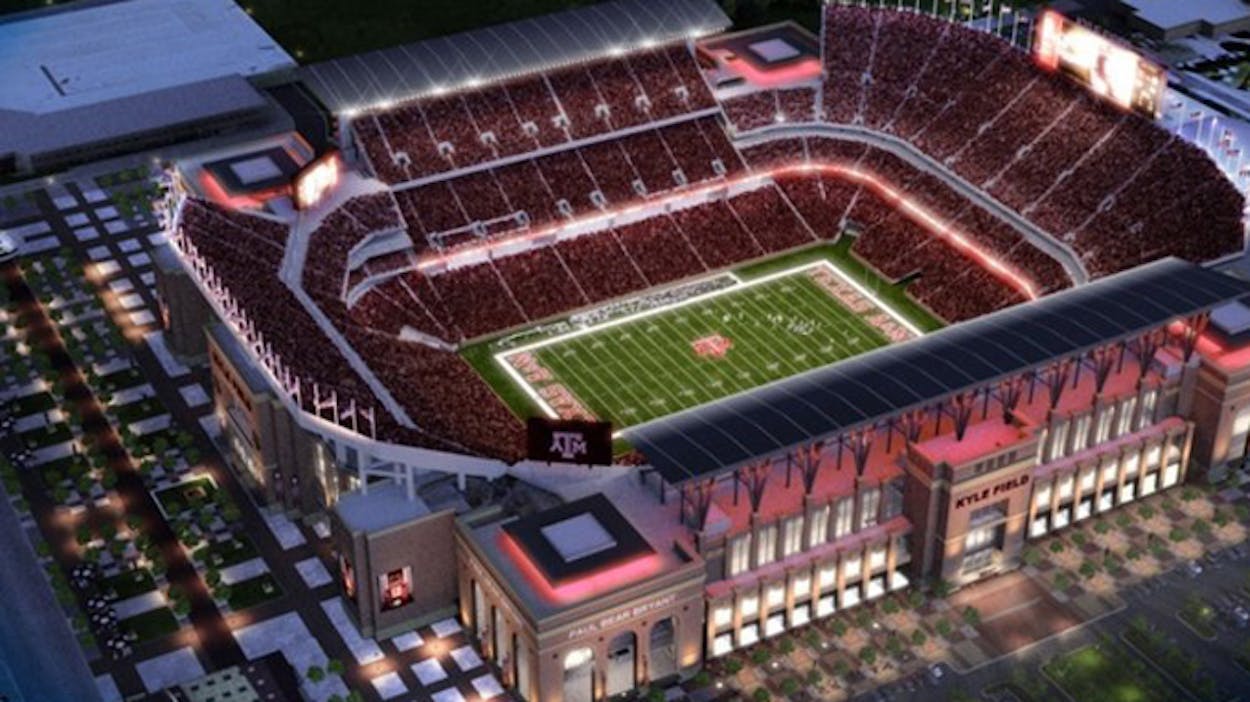Shipping Wars
Houston has surpassed New York City as the nation’s leading export market, according to a U.S. Department of Commerce report released this week. Exports in the region increased 6 percent from 2011 to 2012, a total of $110.3 billion, the Houston Business Journal reports. About one-third of merchandise exports—$36.6 billion—were petroleum and coal products, and chemicals were the second-most valuable category at $31.2 billion.
Mexico, Canada, Brazil, China and the Netherlands were the countries that bought the most goods from companies in the Houston–Sugar Land–Baytown area. Exports were up across the board in the top 50 U.S. markets, which collectively contributed $1.04 trillion to the national economy last year.
The Bottom Line: The San Antonio–New Braunfels metro area also saw major export sector growth, tallying a 33 percent increase since 2011, according to the Commerce Department’s data.
Ags to Riches
Texas A&M is solidifying its plan for financing the school’s new $450 million football stadium, which now includes a proposal to issue $320 million in municipal bonds. The move is in keeping with a growing trend among large public universities of funding athletics facilities through taxable municipal-bond sales, Bloomberg Businessweek reports.
The university’s decision to build the stadium — the most expensive in the history of college sports — “reflects the state’s oil-driven wealth and a boom in spending on college football,” according to the magazine. The project is expected to be completed in time for the 2015-2016 season.
The Bottom Line: A&M plans to repay the 30-year bonds with revenue from suite sales, season ticket fees, and private donations. Cullen/Frost Bankers Inc., which manages the university’s bonds, considers the stadium bond a safe investment thanks to large demand from fans and donors. “Support for Texas A&M football is so strong that there’s very little chance that their bonds would face problems,” one executive told Businessweek.
Debt Reckoning
The Federal Trade Commission slapped a Plano debt collection company with a record $3.2 million fine this week for hounding consumers with repeated collection phone calls, the Dallas Business Journal reports. The FTC accused Expert Global Solutions of harassing alleged debtors — some of whom did not actually owe any debt — by making late-night and early-morning calls, attempting to reach them at work despite being told not to, and leaving messages containing private information with unauthorized third parties, among other complaints, according to the DBJ.
EGS, the world’s largest debt collector, agreed to pay the penalty in its settlement with the FTC, and will also begin recording most of its collection calls.
The Bottom Line: Under the settlement, the company will also be required to be more diligent in responding to disputes over the amount of debt it attempts to collect. When a consumer makes such a claim, EGS “must either close the account and end collection efforts or conduct an investigation to verify the information it has is accurate,” according to The Washington Post.
Winners of the Week: Texas’s International Businesses
A new study by HSBC Bank USA finds that Texas companies with robust international sales and operations “have average profit margins five times greater than Texas businesses that have weak international ties,” the Houston Business Journal reports. The group of businesses with the largest international presence had an average profit margin of 5.1 percent from 2007 to 2012, compared to just 1 percent for the group at the low end of the international spectrum, according to the report.
HSBC attributes Texas’s global advantage to its “solid, extensive infrastructure systems, such as airports, maritime ports and roads, as well as low corporate taxes.” More than 25 percent of jobs in the state are in the exports sector.
Loser of the Week: Roger Goodell
A federal judge in Dallas ruled this week that attorneys for hundreds of angry football fans will be allowed to question NFL Commissioner Roger Goodell in a lawsuit over an incident at Cowboys Stadium during the 2011 Super Bowl, the AP reports. On the day of the game, stadium officials deemed 1,250 temporary seats unsafe, requiring all ticketholders in those sections to move to new seats or stand — and many were issued refunds.
The judge’s order said Goodell is fair game because he had previously admitted to mistakes relating to the installation of the bleachers, which he and Cowboys owner Jerry Jones had endorsed in an attempt to break the all-time Super Bowl attendance record. (The bid fell short by 766 people, mostly due to the loss of the seats). Goodell will give his deposition sometime before Aug. 5.






